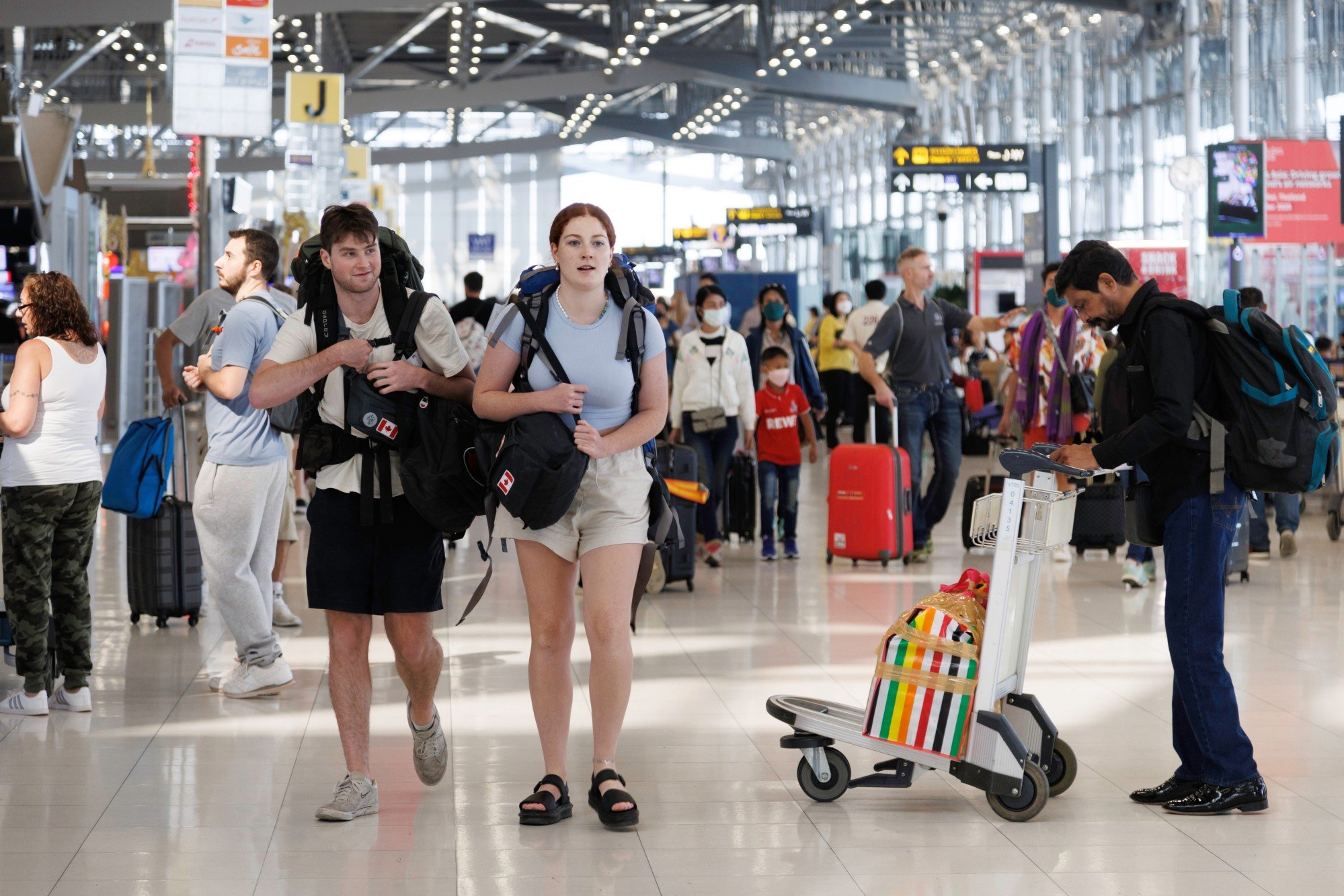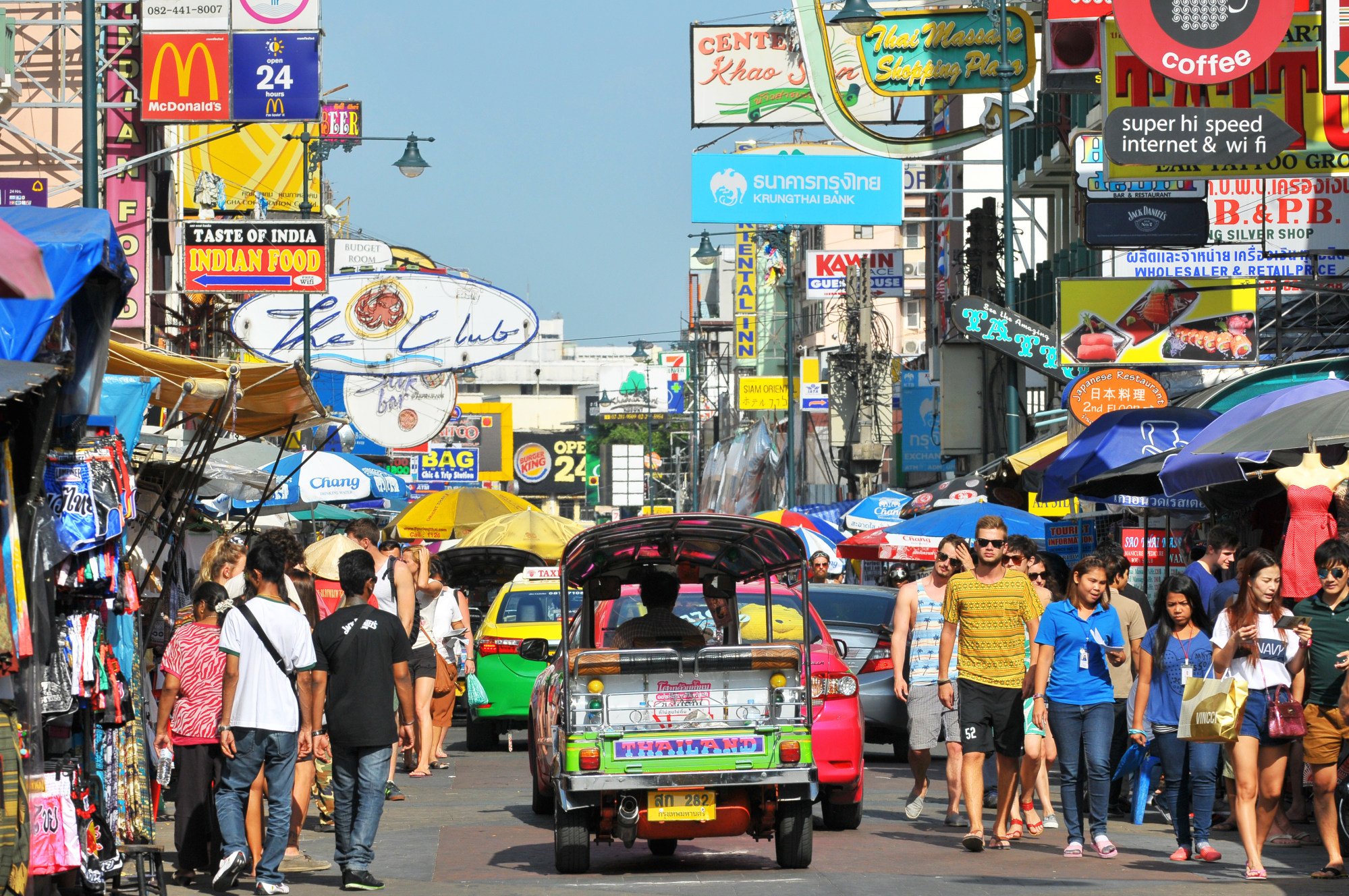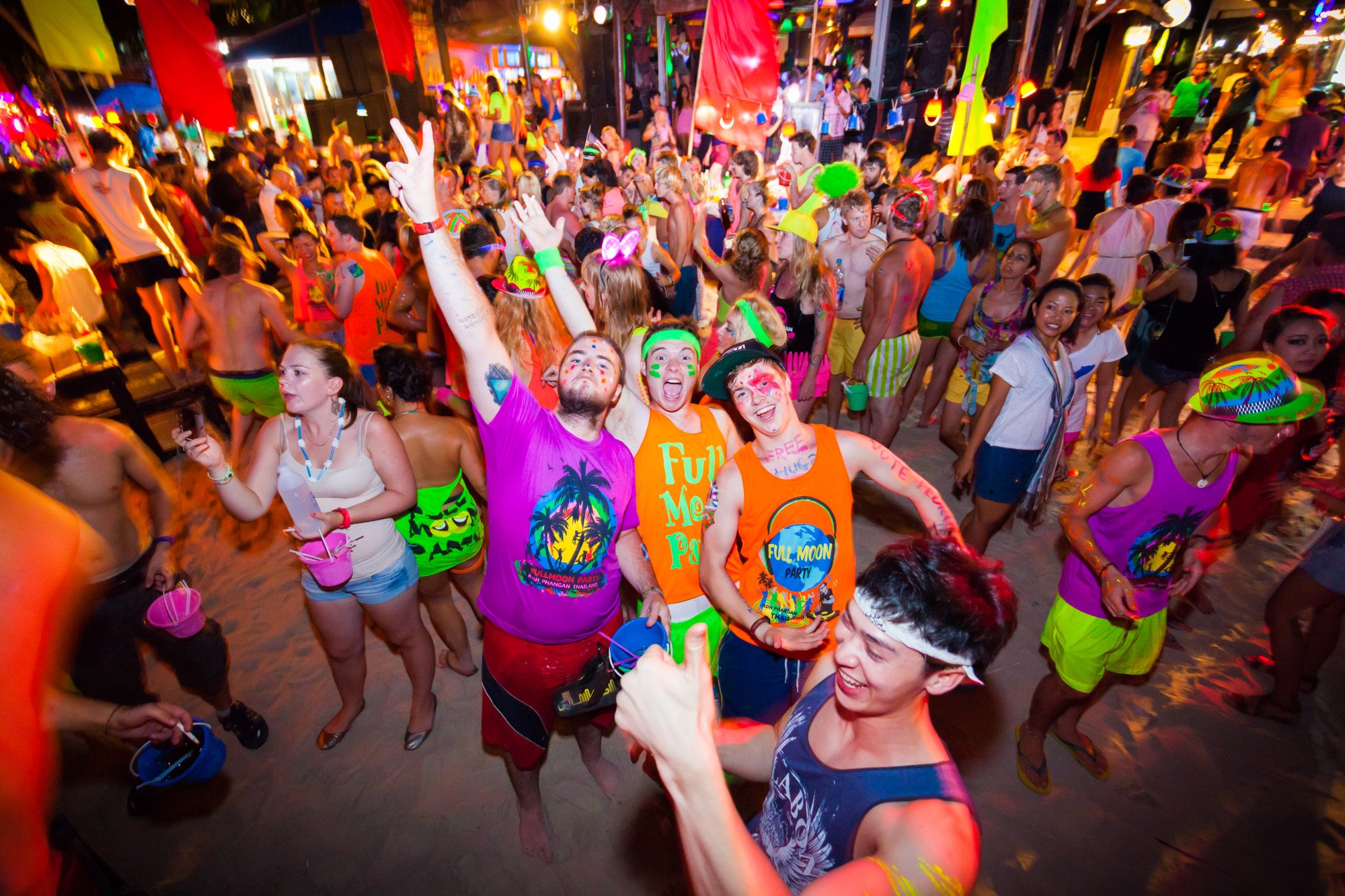Firstly, pack light. You’ll be living in T-shirts, shorts and flip-flops most of the time and you can easily pick up cheap clothes in Southeast Asia.
You certainly won’t need to take a coat, although a long-sleeved shirt will be useful for when the air conditioning is turned up to 11 (shopping malls, buses, restaurants, etc).
You’ve already earned your first backpacker merit points by booking with a budget airline rather than buying a more expensive ticket with a flag carrier. You’ll be able to buy lots of tie-dyed clothing, ethnic bangles and beer with the money you’ve saved.
Don’t eat street food or at places with great views: travel expert’s tips
Don’t eat street food or at places with great views: travel expert’s tips
Be sure to photocopy your passport and other important documents before you set off. As an extra backup, photograph these items and email them to yourself.
One more thing: airport currency kiosks offer convenience but their rates are far from competitive. And steer clear of money changers advertising zero commission and no fee; they catch inexperienced travellers out by offering inferior exchange rates. Use your ATM card on arrival instead.
Hopefully, you’ve booked an aisle or window seat (middle seats aren’t much fun on long-haul flights). Once you’re on board, charge up your phone – each seat will have a plug socket.
You’ll also want to use your phone as soon as you land in Bangkok – even if it’s only to send your dad a selfie from the baggage carousel.
There has been an increase in theft on planes in recent years so keep an eye out for anyone rummaging through the overhead lockers.
I’m sure you’re too smart to be fleeced in mid-air but don’t let your guard down when you arrive. Tourists are more likely to be pickpocketed or scammed within hours of arriving than at any other stage of the trip.
Crooks and con men gravitate to places where jet-lagged, disoriented travellers gather, making you especially vulnerable at airports and bus and train stations.

Once you’ve settled into your hostel dorm (backpackers don’t stay in hotels), checked for bedbugs and politely asked the guy on the upper bunk bed to wash his socks, it’s time to get out and meet people.
Be aware that Southeast Asians don’t usually approach foreigners on the street. If someone comes bounding over with the charisma of a game-show host and asks which country you’re from, they’re probably trying to sell you something.
Smile, say “no thanks” and keep walking.
If the hostel doesn’t have a safe, carry your valuables in a money belt or neck pouch that goes under your clothing. Don’t buy one of those bum bags that newbies wear on the outside – you’re just asking for it to be snatched.

Decline any food or drink offered by strangers, at least while you’re finding your feet. It’s unlikely the coffee will be drugged but it makes sense to be cautious.
Problem is, if you never accept offers of hospitality, you’ll miss out on getting to know people, which is one of the reasons you booked a round-the-world ticket in the first place.
You’ll get more from your trip if you read up on responsible tourism. An informed traveller is in a better position to make ethical choices.
Should you ride an elephant or visit a tiger sanctuary? Is it best to ask before taking a monk’s photo and what are the rules when it comes to tipping?
Find out what sort of behaviour offends the locals and what makes them smile. Don’t raise your voice or lose your temper in public, for example, but do learn a little of the lingo and experiment with the cuisine.
When it’s time to pay the bill, don’t pull large bundles of high-denomination notes from your pocket for all to see
Always bargain courteously in shops and markets – haggling as if your life depends on saving a few coins is not a good look.
On the subject of cuisine, avoid restaurants in prime locations near major tourist attractions. You’re on a budget and there’s no need to blow your savings by dining in overpriced eateries.
You needn’t seek out the cheapest noodle shack, either – food poisoning is no fun. Look for clean establishments with friendly staff favoured by locals.
Return to the same restaurant a few times and watch how the smiles become more genuine, the portions larger and the number of prawns in your tom yum goong increase.

When it’s time to pay the bill, don’t pull large bundles of high-denomination notes from your pocket for all to see.
Thais think all tourists are rich – there’s no need to reinforce the view. Besides, you don’t want to signal to nimble-fingered ne’er-do-wells that you’re loaded with cash.
You’ll probably want to hire a motorbike at some point but have you noticed how many of your tie-dyed peers have bandaged elbows and knees? If you’re still keen to hit the highway, so to speak, make sure you ask the hirer exactly what their insurance covers.
If you’re able to rent a powerful set of wheels using an old library card, rather than an international driving licence, the policy won’t be worth the paper it’s written on.
Why does this small Indian town have so many classic Land Rovers?
Why does this small Indian town have so many classic Land Rovers?
Photograph the motorbike from every angle – you’ll have to sign a form accepting responsibility for damage – it’s uncanny how often staff find dents they claim weren’t there when you hired the vehicle.
Oh, and under no circumstances should you ever leave your passport as a security deposit or collateral.
One last warning: driving in many parts of Southeast Asia is not the same as at home. You can observe the rules of the road as much as you like but don’t assume anyone else will.
Will Bali tourist tax play into hands of Thailand as it cuts alcohol levy?
Will Bali tourist tax play into hands of Thailand as it cuts alcohol levy?
Many of your fellow motorcyclists don’t bother with driving licences, helmets or lights. Some routinely race through red traffic signals and plenty drive while drunk.
Allowing sufficient braking distance between vehicles is unheard of and indicators are only flashed at festival time.
Right, that’s enough fearmongering from me. In reality, the chances of you suffering any mishaps are very low. Have fun and I look forward to joining you on the road in a couple of weeks.
Don’t expect me to stay in a hostel dorm though.
